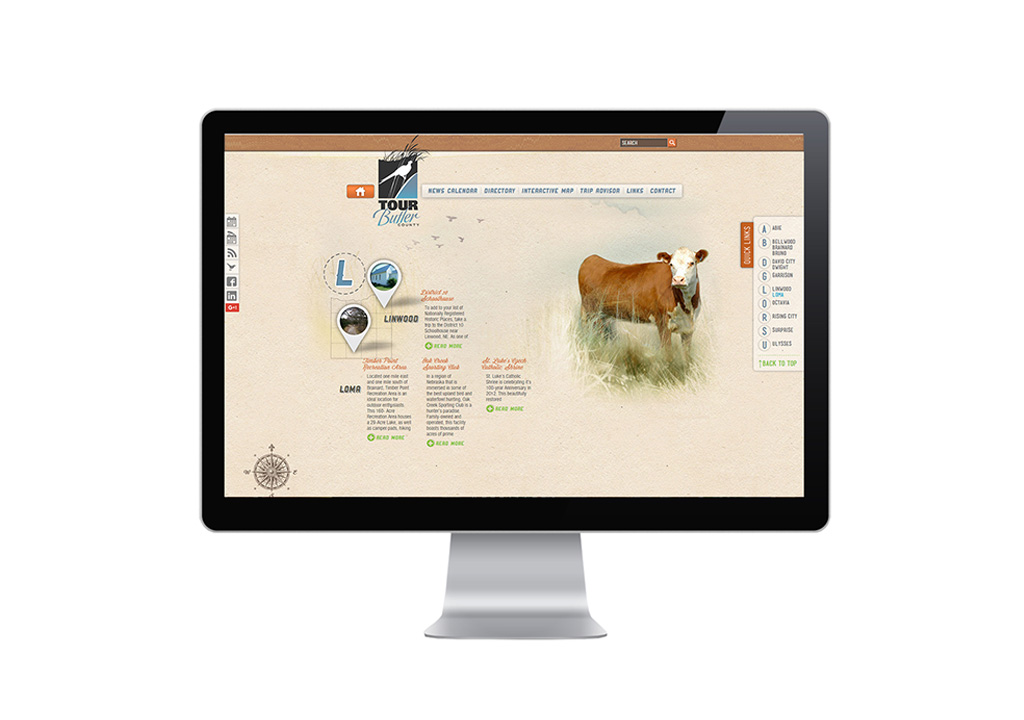Audience
Content marketing is for your customers, not your brand. The objective is to distribute content to attract, earn, and engage your target audience, who should have been defined in your brand goals. Inform, educate, and answer questions your audience is asking. Your client’s needs come first; make them the hero.
“We need to stop interrupting what people are interested in and be what people are interested in.” –Craig Davis
Scanning
People do not read websites as they do books. There are pop-ups, ads and distractions. We have been trained to scan quickly for answers, in which eye-tracking studies discovered a common ‘F’ pattern. Site visitors only read about 20% of your content.
“Marketing used to be about making a myth and telling it. Now it’s about telling a truth and sharing it.” –Marc Mathieu, Unilever
Document Your Strategy
Research shows that documented content marketing strategy is more effective than undocumented, verbal, or no strategy.
How frequently should you publish new content?
A consistent stream of new content daily increases your chances of readers finding you. For most people, publishing quality content daily is too demanding. Instead, research and practice re-purposing content. Schedule and post content generally (not every post) on the best days and highest traffic times, based on social media stream used for your audience, to optimize visibility efforts.
Always ask, “Is this content useful?” and “Does this information answer a question the user was searching for?”
Google likes fresh content
Google has a patented scoring guide which gives numerical rankings based on how recent content is published. Here’s a short list of key points:
- How long ago Google first discovered a page
- How recently a page was updated with new information
- How often a page is updated with new content
- How useful is the content
- How new inbound links correlate with updated content
- How fresh the pages that produce inbound links are
Repurpose content
Posts on social media get buried quickly. Practice repurposing content and ideas by expanding on a topic, reformatting in a different media type (image, video), or refining an email reply to a customer’s question to answer a frequently asked question. Here are 11 ideas on how to reuse your already written content.
Measure Your Results
How do you know what content is performing best?
Awareness
How do you identify metrics from something abstract like awareness?
Google Analytics
![]()
- Impressions
- Organic vs paid search traffic
- Click-throughs
Here’s an in-depth article by NewsCred on using Google Analytics to calculate awareness.
Social Shares
![]() When users actually share your posts to their audience, you can reach new people/customers.
When users actually share your posts to their audience, you can reach new people/customers.
Reach
How many people did you impact with your content?![]()
- New connections on LinkedIn
- New followers on Twitter
- New page “Likes” on Facebook
- New subscribers
- New blog visitors
You can also measure reach using Klout or Radian6.
Engagement
![]() How many people interacted with your content? Does your message inspire people to act and want to share it? Indicators of engagement include:
How many people interacted with your content? Does your message inspire people to act and want to share it? Indicators of engagement include:
- Clicks on links in your social media posts
- Retweets, Mentions and Direct Messages on Twitter
- Shares on Facebook and LinkedIn
- Pins on Pinterest
- Comments on posts
- Ratings
Conversions
![]() How many people took action because your content? Assuming you have a website, use your site as the destination for your social media content to best track conversion metrics. Here’s a case study on engaging and converting customers.
How many people took action because your content? Assuming you have a website, use your site as the destination for your social media content to best track conversion metrics. Here’s a case study on engaging and converting customers.
- Registration for events, webinars, downloads
- Lead generation form submissions
- Phone leads
- Online sales
![]() Use Google Analytics to track your website traffic and activity. Learn to leverage ‘campaign tracking’ for each of your social media posts, and set up ‘goal tracking’ to establish success pages for conversion actions. This will help you track your Return On Investment (ROI) for social media marketing campaigns.
Use Google Analytics to track your website traffic and activity. Learn to leverage ‘campaign tracking’ for each of your social media posts, and set up ‘goal tracking’ to establish success pages for conversion actions. This will help you track your Return On Investment (ROI) for social media marketing campaigns.






